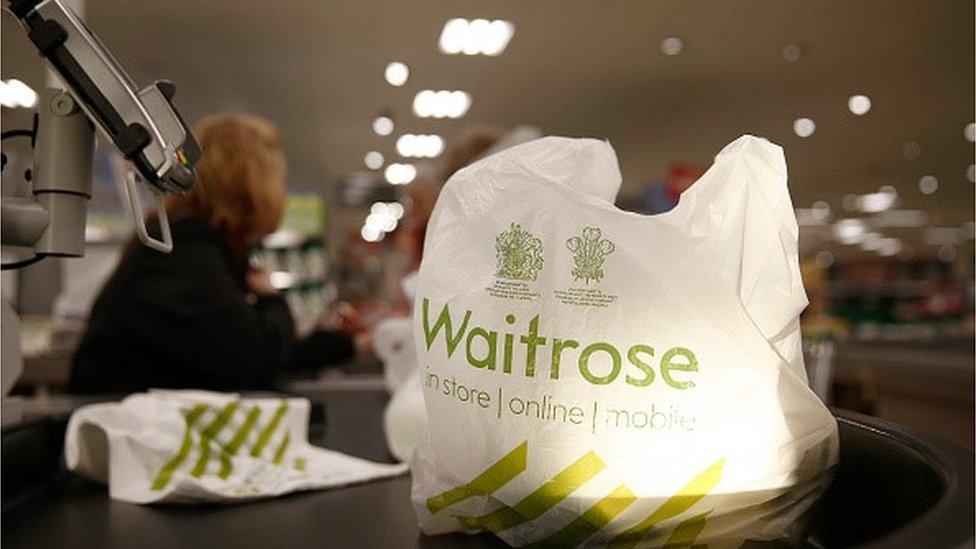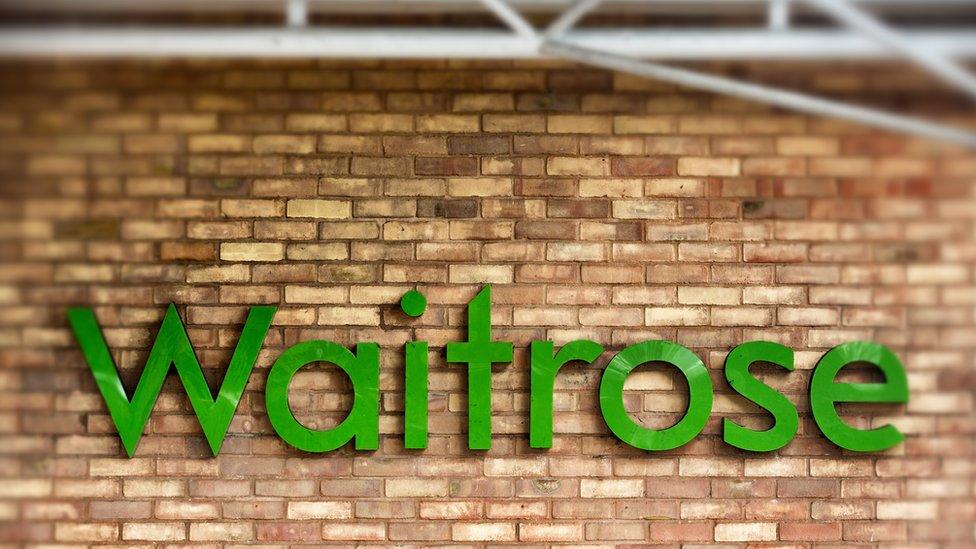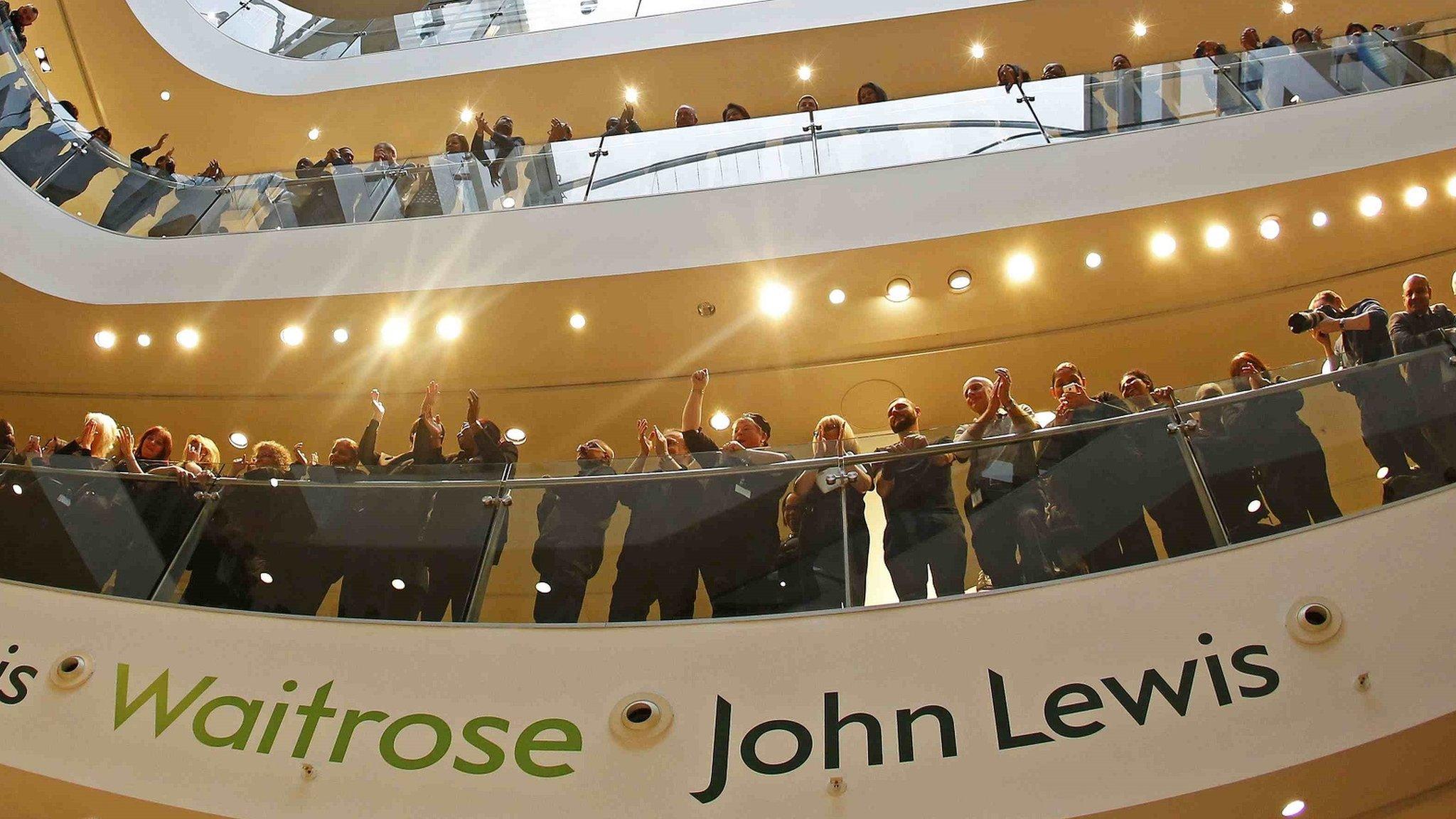Waitrose profits fall in 'tough' trading
- Published

Waitrose supermarket has reported a 17% fall in annual profits as it warned of "exceptionally tough" conditions in the grocery sector, its latest filing at Companies House has revealed.
Pre-tax profit for the year to end of January fell to £66.6m. Sales slipped from £6bn to £5.9bn.
Waitrose also blamed pension costs associated with parent firm John Lewis.
That meant the grocer's annual bonus pot, shared between 58,970 staff, was cut from £87m to £80m.
The Waitrose figures were originally published in March as part of the annual results of John Lewis.
Waitrose warned it was operating "against a backdrop of exceptionally tough market conditions and continuing food price deflation".
Supermarkets have been engaged in a bitter price war for several years as a result of the rise of German discounters Aldi and Lidl in the UK.
Waitrose has until recently been thought to have been largely immune from the effects of the rise of the discounters outperforming the so called "big four" of Tesco, Asda, Sainsbury's and Morrisons.
But Waitrose faced tough trading over the crucial Christmas period when it posted a 1.4% fall in like-for-like sales, excluding fuel, over the six weeks to 2 January.
Over the year, like-for-like sales were down 1.3%.
In April, Waitrose boss Mark Price stepped down from the supermarket, with retail director Rob Collins replacing him.
Mr Collins is continuing the firm's strategy of offering shoppers additional reasons to frequent its supermarkets, opening wine and juice bars, cafes and specialist bakeries.
In March, John Lewis reported pre-tax profits of £305.5m for the year, down from £342.7m a year earlier.
- Published1 June 2016

- Published6 January 2016
.jpg)
- Published10 March 2016
